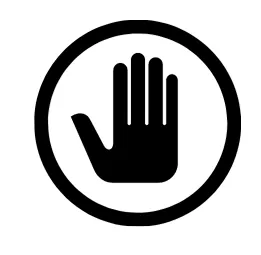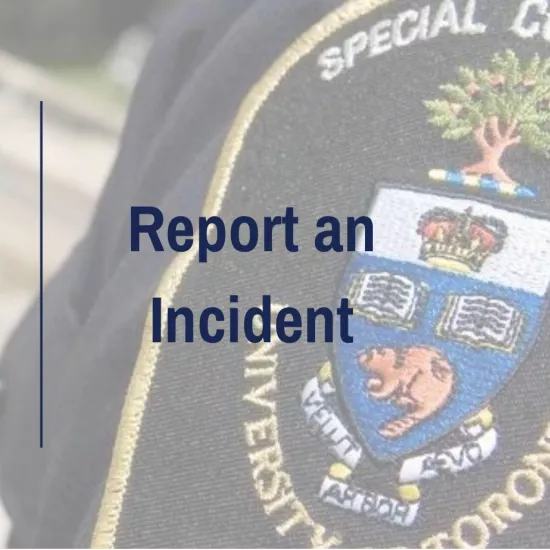You can protect yourself and greatly reduce your chances of becoming a victim of fraud by stopping, fact checking the source, and never giving out any personal or banking information.
Unsure if that email or phone call you received is legitimate?
P A U S E. Contact Campus Safety FIRST before proceeding any further. Special Constables can help you verify if it is real or fake.
Did You Know?
There are various ways fraudsters attempt to target and exploit victims. This can include telephone calls, phishing emails and online scams. Fraudsters continuously change their tactics and utilize new technologies as a way to engage, target, and exploit victims, often with devastating financial and emotional effects.
In fraud cases reported to Campus Safety, victims have reported losing a substantial amount of money (sometimes exceeding $10,000).
It is important to understand and recognize the signs of fraud before you fall victim.
Fraud Prevention Tips

NEVER GIVE OUT ANY PERSONAL INFORMATION THAT THE CALLER DOESN'T ALREADY HAVE. THIS INCLUDES: YOUR ADDRESS, NAME, DATE OF BIRTH, SOCIAL INSURANCENUMBER, BANKING INFORMATION OR PASSPORT NUMBER.

ASK QUESTIONS ABOUT THE CALLER.
SCAMMERS OFTEN POSE AS LAW ENFORCEMENT AGENCIES OR OTHER COMPANIES. VERIFY THEIR IDENTITY FOR YOURSELF BY CALLING THEIR AGENCY OR COMPANY BY THEIR PUBLICLY LISTED NUMBER.

ASK YOURSELF IF THE CALL IS UNUSUAL OR UNEXPECTED. IF YOU WEREN'T EXPECTING A DELIVERY OR PHONE CALL, FACT CHECK THE INFORMATION THEY ARE PROVIDING. SCAMMERS OFTEN USE TECHNOLOGYTO MAKE IT SEEM LIKE THE CALL IS ORIGINATING FROM A LEGITIMATE SOURCE.

BE CAUTIOUS OF CALLS THAT HAVE A SENSE OF URGENCY. SCAMMERS HAVE OFTEN THREATENED JAIL TIME, DEPORTATION, OR FINES IN AN EFFORT TO PUSH VICTIMS TO SEND MONEY PROMPTLY.

THE POLICE, CANADA REVENUE AGENCY OR THE CANADA BORDER SERVICES AGENCY DO NOT EMPLOY THESE TACTICS NOR DO THEY SEEK PAYMENT OF LEGITIMATE FINES THIS WAY. THIS INCLUDES BITCOIN AND GIFT CARDS.
Common Fraud Scams Reported to Campus Safety
Campus Safety has received reports of scammers posing as law enforcement agencies and demanding money. Some of these include:
- CBSA (Canada Border Services Agency)
- RCMP (Royal Canadian Mounted Police)
- Municipal Police Services
Scammers often threaten arrest warrants, deportation, or fines.
** Police Services will never demand money from you in order to clear your name of criminal charges. They will never threaten you with arrest warrants or deportation if you refuse to send money.
Another common scam reported to Campus Safety is scammers claiming to be from Canada Revenue Agency or Service Canada. They may state that you:
- Have a compromised SIN Number
- Have an outstanding case against you
- Owe back taxes
- Have unpaid balances
- Have committed a financial crime
They often threaten if you do not speak to them immediately, you'll be arrested, fined, or even deported.

Scammers often request payment in bitcoin, pre-paid cards/gift cards (Itunes, Google Play).
You can report any fraud or cyber crime by telephone or online by following the link:
Canadian Anti-Fraud Centre Reporting
For more information, please visit the Community Safety Office Fraud Prevention page.


